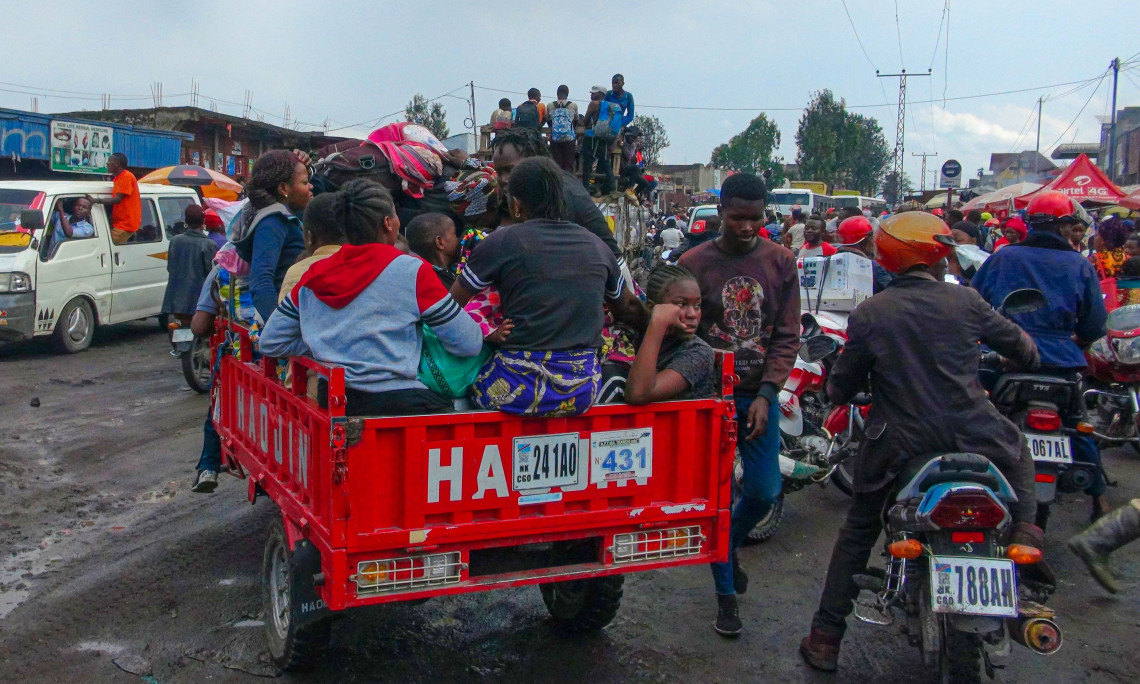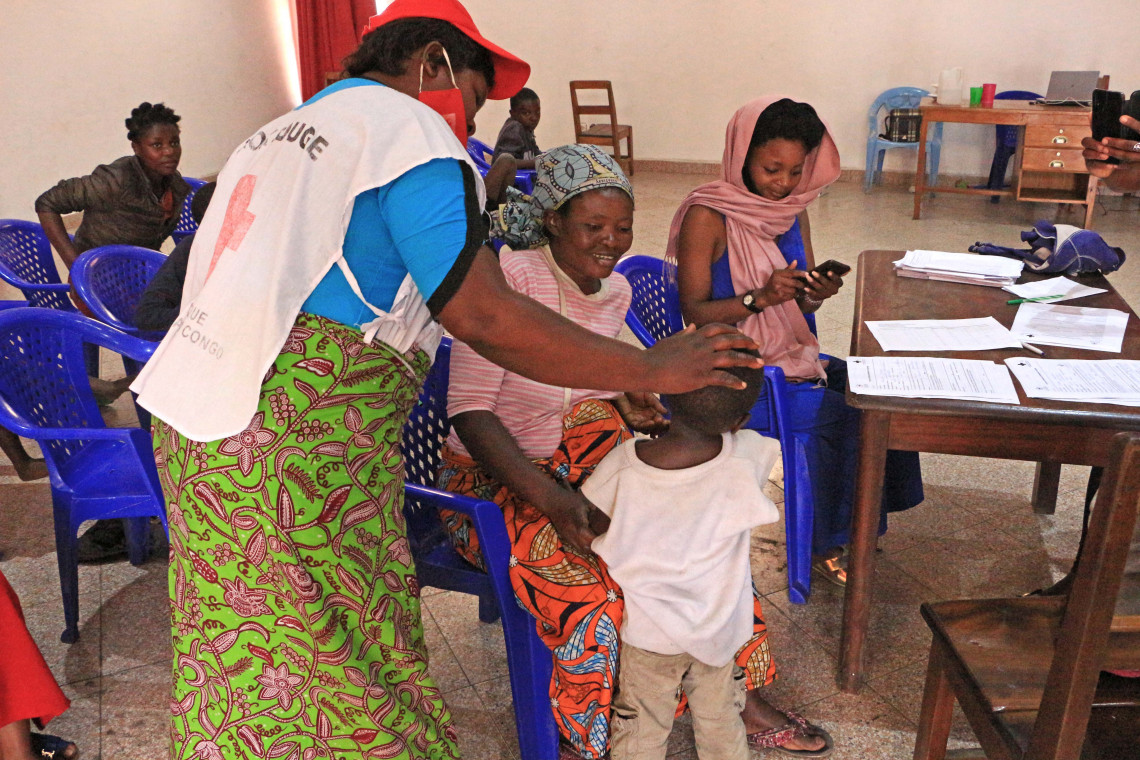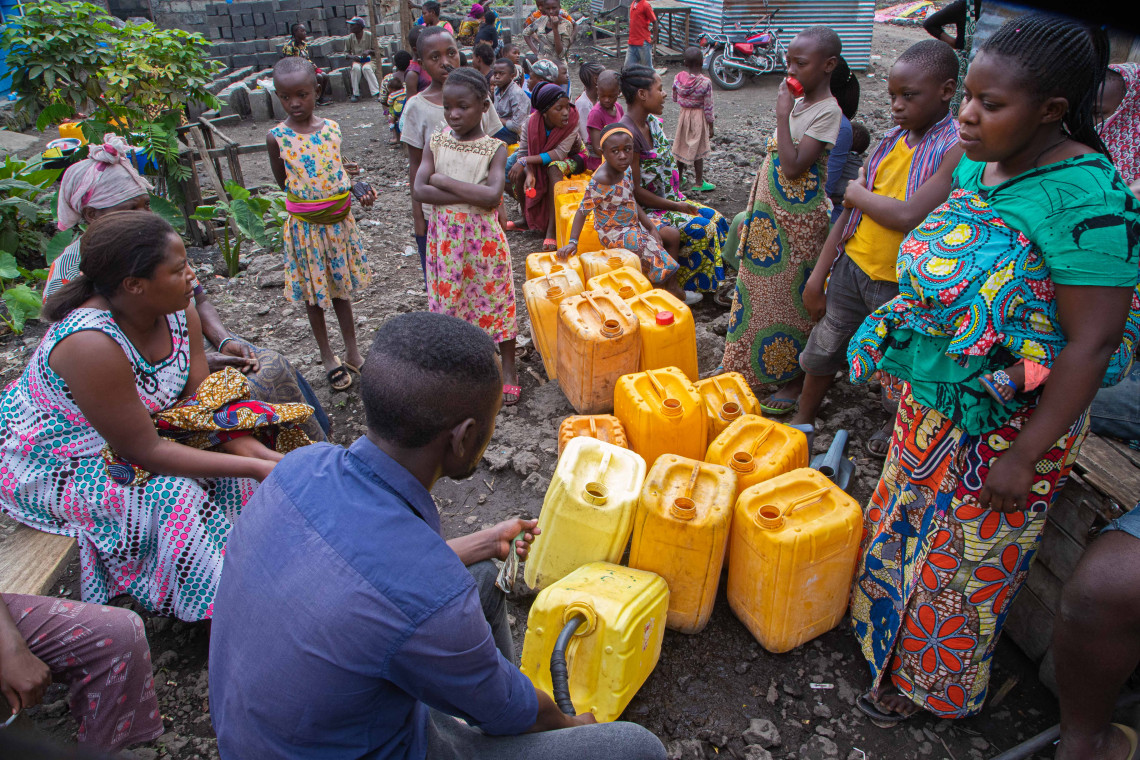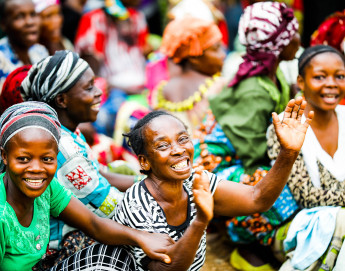
DR Congo: The population of Goma flees a volcano’s menace as a major humanitarian crisis looms
People flee danger once again
Even though the eruption of May 22 is over, the gasses released by the volcano are still a threat to Goma's residents. Earthquakes continue to rattle the region, exposing the population to further risk, and it is difficult to specify the extent of the humanitarian needs. "The threat of another eruption is still real and the fear palpable. Earthquakes are still felt every five minutes in the city," said Raphaël Tenaud, ICRC operations manager in Goma.
On the night of Wednesday to Thursday, the exodus of thousands of people began towards the town of Sake in the west following the announcement of the evacuation of part of the city by the authorities due to the risks associated with seismic and volcanic movements.
Around 2 a.m., the families started heading for the port. The streets are full of people and there is a wave of panic, some with vivid memories of the eruptions and destruction of 2002. People are seeking safety, but some are also afraid to abandon their homes.

"The people of North Kivu have already struggled with socio-economic challenges and the consequences of armed conflict for decades. The region is one of the most food insecure places in Africa. This catastrophe is a double penalty. With each crisis, the capacity for resilience diminishes,"
Raphaël Tenaud, ICRC operations manager in Goma
Thousands of displaced people are seeking water, shelter, basic necessities, hygiene items and food. With the main road running north from Goma now cut off and all the very fertile cultivated land in that part of the city destroyed, it is likely that the city's residents will suffer food shortages in the days to come.
Prevent family separation
In just 48 hours, nearly 550 children were separated from their families as people fled following the eruption of May 22. It is essential to prevent thousands of displaced people from losing contact with their loved ones.
"We advise families to memorize the phone numbers of their loved ones as much as possible. If a person is traveling with a sufficiently grown child, they need to teach them their full name, their region of origin and the phone numbers of close people, in case they are separated from them," said Rachel Bernhard, head of the ICRC delegation in the DRC.
Homes destroyed and essential services disrupted
More than 900 houses have already been destroyed. The water and electricity supply are still in operation in some parts of the city, but it's not clear exactly what coverage there is. The lava has seriously damaged the main reservoir in Goma city. It is estimated that nearly half a million inhabitants are without drinking water, and there is a high risk of waterborne diseases such as cholera. This precariousness is also to be taken into account for the thousands of people who had to leave Goma.
"We are doing everything we can to meet the many challenges associated with this constantly evolving situation, while respecting security measures. Some of our teams are moving with the population, others repair the reservoir or facilitate the supply of water by tanker truck to hospitals and Goma prison," says Rachel Bernhard.
In addition, medical structures require support to ensure continuity of care, particularly in primary health centers. At Ndosho hospital, the ICRC medical team is continuing to take care of gunshot victims from all over North Kivu province. Secondary health facilities received assistance to maintain the supply of electricity, water and medicines.

The ICRC and RCDRC activities
The Red Cross Society of the Democratic Republic of the Congo (RCDRC) and ICRC teams are adapting their response in order to continue restoring family links, to support health centers in the most remote areas and to distribute food and hygiene kits to the most vulnerable.
Sixty-four Red Cross volunteers from the Provincial Committee of North Kivu were mobilized on Saturday evening to carry out victim assistance activities (distribution of water, first aid) and to restore family links.
Protection
- With technical and logistical support from the ICRC, the RCDRC sends unaccompanied children to various reception centers and has set up three additional kiosks to collect family reunification requests and guide families.
- The ICRC is supporting the Don Bosco center and the Margherite center, which since May 22 have accommodated hundreds of unaccompanied children.
Health
- The ICRC is maintaining surgical activities at Ndosho hospital. It provides support there to ensure access to electricity and water, and supplies war surgery equipment and drugs, including a war surgery kit for 50 patients. The ICRC also donated two tents to secure the placement of patients out of buildings that are in danger of collapsing at any time.
- The ICRC helped transfer the pharmacy from Virunga Hospital.
- The RCDRC continues its health activities, in particular in three additional tents provided by the ICRC.
Access to water and shelter
- The ICRC is strengthening the operation of pumping and water catchment stations in Goma with a fuel donation of nearly 12,000 liters over two weeks in support of the water company Regideso
- RCDRC and ICRC tankers supply water to the affected areas.
- The ICRC is boosting water and fuel supplies at Ndosho hospital for two weeks.
- It is also strengthening the water supply system at Goma central prison.

For more information, contact:
Halimatou Amadou, public relations officer, Dakar, +221 78 186 4687, hamadou@icrc.org
Carol Lumingu Kazadi, public relations officer, Dakar, +243 81 292 59 14, clumingukazadi@icrc.org
Follow the ICRC on Facebook (facebook.com/icrc) and Twitter (twitter.com/icrc)


